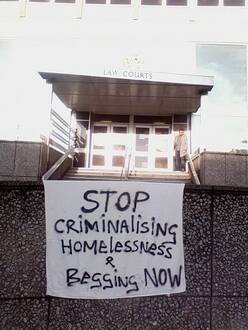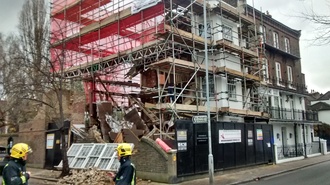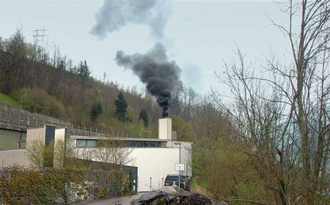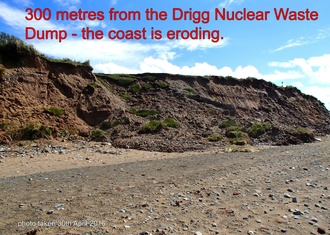-
Stop Criminalising Homelessness and BeggingIncreasing numbers of homeless people are being arrested for begging around the country. In 2013-14, 2771 cases were brought before the courts, a 70% increase on the previous year. Police use an archaic law which deems those found begging to be 'idle and disorderly'. Begging was made a recordable offence in 2003 against the strong criticisms of civil rights groups and homelessness organisations. Those prosecuted can be fined up to £1000 excluding court charges when found with just a few pennies. Those who have 'gathered alms' (that is, accepted money, food or other material goods offered to them) can be prosecuted under this same law with the same consequences. Some people are kept in cells for several nights. Although begging in and of itself is not an imprisonable offence, if the person is already on bail for another case a simple arrest for begging can lead to imprisonment. Those who are fined will inevitably have to beg more to pay off these fines, risking further arrests and fines, a punishment which stands out in its absurdity. Punishing the destitute for trying to survive is both costly and morally abhorrent. It is a waste of tax payers' money which is spent paying police who 'catch people out' in organised undercover operations, as well as on court cases to prosecute them. The minimum cost of bringing one case to the Magistrates' Court is £1000, meaning that in the year 2013-14, bringing begging cases before the courts cost the taxpayer at least £2.777 million. This is money that could be spent helping people rather than punishing them. Police also routinely move homeless people on under part 3 of the Anti-social Behaviour, Crime and Policing Act (2014) which gives police the power to confiscate property and exclude individuals from a particular area for up to 48 hours, with the officer also able to impose by what manner and route the person must leave. Failure to comply is a criminal offence which can result in a £2500 fine or 3 months in prison. Refusing to surrender your property is punishable by a fine of up to £500. The two conditions needed by officers to issue a dispersal order are firstly, that the constable has 'reasonable grounds to suspect that the behaviour of the person in the locality has contributed or is likely to contribute to (a) members of the public in the locality being harassed, alarmed or distressed, or (b) the occurrence in the locality of crime or disorder, and secondly, that the constable considers that giving a direction to the person is necessary for the purpose of removing or reducing the likelihood of (a) or (b)'. Given that begging is a crime considered 'idle and disorderly', the two laws in tandem essentially give police de facto power to exclude any homeless person from any area simply because they think it is likely that the person, being homeless, might beg there. The highly subjective definition of 'anti-social behaviour' as that which contributes or is likely to contribute to members of the public in the locality being harassed, alarmed or distressed reinforces this and even with the decriminalisation of begging, would still give police the power to move on any homeless person from any area simply because they believe doing so is necessary for the purpose of removing or reducing the likelihood of members of the public being distressed by seeing them. Seeing people forced to live on the streets is distressing to much of the public for good reason, but this compassionate distress means that under this definition a homeless person is considered to be exhibiting anti-social behaviour simply by existing visibly. The anti-social behaviour that causes the public distress is not caused by the homeless person however, but by the authorities' failure to provide people with shelter in a country that has 600,000 empty homes. As described by someone living on the street, being asked to move on when you have nowhere to go is like being asked to walk into a brick wall. These laws and their enforcement victimize vulnerable people who are already suffering the daily struggle of life on the streets or in insecure and unstable temporary accommodation. We believe that kicking someone for limping when it is you who cut off their leg is shameless and cruel. We believe that the government should be providing homes for the homeless, not handcuffs. We therefore call on parliament to repeal without replacement section 3 of the Vagrancy Act (1824), to amend part 3 of the Anti-social Behaviour, Crime and Policing Act (2014) to safeguard homeless people from its discriminatory use, and for an ultimate end to the criminalisation of homelessness by any and all other laws that may be newly concocted or dug up for this purpose. If you have an MP who may be sympathetic, get in touch with them to push this issue to parliament. We launched this petition at our demo at Brighton Magistrate's court on the 20th January.747 of 800 SignaturesCreated by J J
-
We condemn the American bombing of MSF hospital AfghanistanVolunteer doctors and nurses from MSF were working in one of the few functioning hospitals in Afghanistan. The hospital was targeted by American bombers in an act of complete bungling incompetence. 42 patients and staff were killed by the Americans in their attack. MSF believe that a war crime was committed. Those responsible need to be held accountable for their actions: not only the air crew, but their commanders as well.2 of 100 SignaturesCreated by Brian Lambert
-
Stop intrusive basement developmentsThe threat to neighbourhoods and businesses suffering this plague of development show planning rules to be far too heavily weighted in favour of developers. Local residents and businesses, ambushed by ambitious plans, are now often locked out of any consultation process - their rights ignored. Local councils, who they count on to represent their interests are increasingly unwilling to fund legal appeals against their own refusals of planning consent - so give in. Now, not only are homes and businesses put at risk but the quality of life of entire neighbourhoods is vandalised. Innocent property owners should not have to mortgage their livelihoods to fight off the life-style expansions imposed by their neighbours and absent developers. This is wrong and needs to change nationally and locally. Legislation needs to be introduced to persuade or nudge a change in the current property abusing culture. The weight needs to shift in favour of those who need protection against the bullying financial demands of those who assume they can continue, and afford, to override and out-finance their innocent neighbours and local councils and, thereby, impose their encroachments on others. Somehow, a wholesale review of this clash needs to address and reform this injustice, where local authorities decide in favour of developments, regardless, because they are financially restricted, particularly through expensive appeals processes, in affording the costs incurred, to protect their constituents who innocently assume such local authorities might act in their civil interests – many are now disillusioned. As Air Studios fights for its survival, there are other fights against basement plans, including those of the owners of Admiral’s House to safeguard the heritage of Hampstead against plans by the owners of Grove Lodge and the residents of New End to stave off a 3 basement development by the owners of 29 New End. Countless others abound around the country. Something needs to be done against the tyranny of unsuitable basement developments.1,297 of 2,000 SignaturesCreated by Jessica Learmond-Criqui
-
Keep the elderly in their own homesMears helps the elderly to remain in their own homes. Elderly neighbours and relatives have found this service vital when they did not know who else to turn to. The cost is reasonable and the workmen are very good and caring.5 of 100 SignaturesCreated by Heather Gould
-
Publish a full apology to the BMA junior doctors' committee on the front page of The Sun NewspaperJunior doctors of the United Kingdom have reluctantly, and almost unanimously, voted in favour of the first "all-out" strike in the history of the NHS. This is in response to the proposed imposition of a contract which is widely acknowledged in medical circles to be unsafe for patients and doctors alike, without mentioning the likelihood of a significant cut in pay for medical staff, while asking them to work longer hours. This is not a decision that has been made lightly, and at all points the BMA has remained open to the option of full, fair contract negotiations - an option which Secretary of State Jeremy Hunt and the current government have repeatedly declined to take. Throughout this process, junior doctors have been the target of a smear campaign headed by national media institutions, none so fervently as The Sun newspaper. This systematic abuse reached a new low today (10/01/2015) in an article entitled "Moet medics: High life of docs’ leaders who are heading up NHS strike", which passes beyond slander into the realms of active discrimination. To take photos of doctors on holiday from personal social media accounts and print them in a national newspaper is invasion of privacy enough, without pretending that this is evidence of a "jet-set lifestyle" being enjoyed by these medical professionals. As part of every doctor's contract, they are entitled to periods of annual leave, and whether they choose to travel abroad or not during this time is utterly irrelevant to their professional practice. Similarly, stating that these doctors are "champagne-swilling socialists" on the basis that one individual supported a ratified candidate in their successful campaign for the position of head of the Labour party is not only a sweeping generalisation completely immaterial to the debate at hand, but is an attempt to debase an entire profession by implying that, for doctors, the right to political expression is not a basic human right. The same is true of publishing the values of property owned by various committee members - the insinuation being that home-ownership in major UK cities is somehow a crime for the medical staff who work in these areas, and being able to afford accommodation is evidence of the "high life". Articles 8, 9 and 10 of the Human Rights Act 1998 enshrine the right of every UK citizen to " the right to respect for his private and family life, his home and his correspondence", "freedom of thought" and "freedom to hold opinions and to receive and impart information and ideas". For an article in a mainstream newspaper to imply that a person's profession and position on committees somehow renders these guarantees forfeit is not only a pathetic excuse for "investigative journalism", but also risks setting a dangerous precedent whereby the basic rights of essential, hard-working medical professionals are eroded in the public conscience. Such thinly-veiled attacks on dedicated doctors will serve only to reduce already unprecedented low levels of morale, and further drive the ongoing exodus from the medical profession in the United Kingdom. As such, we the undersigned petition Tony Gallagher and The Sun to limit the damage done to these individuals and the medical profession as a whole by submitting a full, unreserved apology to the BMA junior doctors' committee in a prominent position on the front page of an edition of their newspaper.3,072 of 4,000 SignaturesCreated by Andy Nicholson
-
Help keep a small family togetherThis is important because a young newly married couple are scared they will be split but what is the upmost importance of this is that a two year old boy is threatened with the loss of his mother and his little family being torn apart due to the Home office548 of 600 SignaturesCreated by Lee Furnell
-
Bring Europe's Unaccompanied Refugee Children to the UK NowAfter the recent demolition of half of the Calais Jungle we need you to take immediate action on the International Development Committee’s recommendation to bring 3000 unaccompanied refugee children who are currently residing in refugee camps not only in The Jungle and Grande Synthe, Dunkirk but in the whole of Europe, to the UK - including all minors with family connections in the UK. This is in addition to the current commitment to resettle 20,000 refugees from the region. These children have lost their homes, their education, people who loved them, their friends and their communities. They have seen war and all its cruelties - the last thing we can do is abandon them. This would be the most inhumane form of neglect. Stephen Twigg MP, Chair of the Committee sums up why when he said: "Children are clearly some of the most vulnerable refugees this crisis has created. The Committee heard that close to 80% of Syria's child population already need humanitarian assistance. In December, the UNHCR and International Organisation for Migration estimated that one million refugees and migrants fled to Europe in 2015. Of more than 900,000 people taking the dangerous route across the Mediterranean, one in every two were Syrian. The first refugee casualty of 2016 was a drowned two year old boy pulled from the sea off the Greek coast. Having survived the treacherous journey, there is a grave possibility that unaccompanied children become the victims of people traffickers who force them into prostitution, child labour and the drugs trade. This is an issue of utmost urgency."12,875 of 15,000 SignaturesCreated by Jim Innes

-
Allow commuters with disabilities to use free bus pass for commuting.At the moment the free bus pass is only valid for journeys which start after 9.30am. This seems illogical for a travel benefit which is specifically aimed at "people of working age". Imagine having a stroke in your early twenties, your life slips away to be replaced by dreams. You fight hard to recover, and learn how to walk. You want to volunteer at a local food bank but the bus pass you hold won't allow you to travel there on time. You were hoping that the volunteering might help you get a job. All you needed was a small helping hand instead of a closed door.10 of 100 SignaturesCreated by Rebecca Woods
-
Scotland: Keep a minimum distance between crematoriums and homes!Would you like to attend the funeral of one of your loved ones only to hear the sounds of a neighbouring barbecue or a loud stereo? Would you like to live next door to a constant funeral procession, with all the associated sounds coming through your windows daily? The Scottish Government is proposing to allow crematoriums to be built and operated directly next to your house in their new Burial and Cremation (Scotland) Bill. The Local Government and Regeneration Committee will meet on January 6th to review their proposals. The Scottish Government have made a huge oversight in their new Cremations and Burials Bill: they have removed the requirement for any minimum distance to be upheld between crematoriums and homes. This is a vital protection for the privacy of mourners and home-owners and a minimum distance must be upheld in law. In the Government's own consultation paper on the bill (which they put out to industry experts to pass comment on their plans) 75% of respondents recommended to keep a minimum distance of 200 yards (see Q11 in this document: https://goo.gl/8PlZ93). The Consultation Report states: "Respondents were strongly in favour of retaining a significant minimum distance. Many who commented considered that the most important factor for retaining a minimum distance was to ensure privacy and dignity for both home owners and mourners. A substantial distance would also ensure adequate provision for memorial gardens and car parking." This petition asks the Local Government and Regeneration Committee to ensure the 200 yard minimum distance is upheld in the new Bill. Already in Haddington, East Lothian, the local planning authority has granted permission for a crematorium to be built in anticipation of the new law - construction has not begun yet but it will soon if the Bill is passed by the Committee this petition is addressed to. For the crematorium in question; there are several neighbouring properties, including a dairy farm. The closest home is only 45 yards away and has bedroom windows below the level of the proposed chimneys in line with the prevailing wind! The proposed car park for the crematorium is directly next to the garden meaning that both the home owners and mourners would have a huge lack of privacy. Imagine walking to your loved-one's funeral and hearing children playing or people laughing? Imagine trying to relax in your garden whilst mourners walk by. Also, emissions from crematoriums are still not entirely understood - particularly and most worryingly in the case of mercury which is present in tooth fillings and is extremely toxic to humans and animals. The Scottish Government hope that by removing the requirement for any minimum distance to be upheld between a crematorium and a home that local planning authorities will make the correct decisions on a case-by-case basis. However, the above development is a case in point that this does not work: East Lothian council owns the building in which the proposed crematorium is to be built and they have wanted to sell it for a number of years. They have agreed a deal with a crematorium developer to sell the building and therefore have a vested interest in ensuring everything goes smoothly in the panning process and, as such, have ignored local businesses and home-owners concerns and ignored all of the numerous negative impacts the development might have. They have abandoned due diligence in the pursuit of profit. If the Scottish Government allows this Bill to pass without upholding the minimum distance of 200 yards which is recommended by it's own consultation then it is condemning not only the people of Haddington but also countless others in future to have their homes and businesses - never mind the funerals all over the country - severely affected. The Government's job is to create legislation to protect people in all aspects life and if this Bill is passed into law without upholding any minimum distance between a crematorium and homes/businesses then the Government will fail in it's duty to the people of Scotland. It is clear that Local Planning Authorities are subject to prejudice and therefore fail to protect the people of Scotland given what has occurred in Haddington, East Lothian in anticipation of the new law being passed. Please uphold the minimum distance of 200 yards!432 of 500 SignaturesCreated by Jamie Murray
-
UK should condemn beheadings by Saudi ArabiaOne of the 47 people beheaded was a Shia cleric. His execution has provoked outrage in Iran and Bahrain and threatens to further destabilise the Middle East and thereby threaten world peace. The 47 executions should be condemned by the entire international community.181 of 200 SignaturesCreated by Pauline Fraser
-
Do NOT send Kaveh Ghandizadeh Dezfuli back to IranKaveh Ghandizadeh Dezfuli has been detained by UK immigration authorities since the 15th December 2015, the same day he was asked to present his fresh claim for asylum. His previous claim in 2013 failed because British courts refuse to recognise the severity of the Islamic Regime in dealing with 'westernized' Iranian nationals who apparently tarnish the reputation of Islam. Despite submitting strong evidence that his many television appearances on the popular Manoto TV - a satellite station recorded in London and broadcast illegally to Iran - with known dissident musicians such as Shahram Shabpareh (a very famous Iranian musician and writer of explicitly anti-regime songs) make him a target for abuse, torture and imprisonment by the Islamic Regime, no interview was granted and the fresh claim was not accepted. Mr Dezfuli was given a limited notice of removal on the 27th December, informing him he would be removed between the 30th December and the 20th January 2016. He was not given at least two working days to challenge the decision. The only day the courts would have been open between the 27th and 30th December was Tuesday 28th. Kaveh Ghandizadeh is a great friend to many and a huge part of the London music community. Please do not endanger this person's life, in breach of the ECHR. This is a kind, honorable and gentle man who has never committed any crime (other than the 'crime' of being a westernized musician) and poses no threat to our national security.1,732 of 2,000 SignaturesCreated by Jo Honey
-
Lock the Gate on Drigg -No More Nuclear WasteTo describe the UKs nuclear waste site as a “Repository” is putting a spin on the UKs main nuclear dump for "low level" waste. There is "controlled discharge direct to the Irish Sea" not to mention run off to the Drigg Stream and River Irt. Discharges to the air of radioactive gases are ongoing. According to the British Geological Society the Drigg site is above a regional aquifer. It is also "likely to be destroyed by coastal erosion" in 500 to 5000 years (computer modelling can be wrong either way) . Much of the waste is long lived and high risk. Below are a few of the reasons why it is important that Cumbria County Council Lock the Gate on Drigg: Planning Application PL\1508\05 (4/15/9012):The phased construction of additional vaults, higher stacking of containers..capping.. 1. Drigg Low Level Waste Repository (the word nuclear was dropped so as not to scare the horses) would continue to accept nuclear waste for decades to come. "Capping" is misleading. To cap” a nuclear dump is akin to putting a cap on a fizzy lemonade bottle while there are holes in the bottom of the bottle. The site will continue to leach aqueous emissions to groundwater and gaseous emissions to air. 2. LOW LEVEL: This suggests that the waste at Drigg is low risk and short lived. Neither is true. As the University of Reading has pointed out: “The Drigg site uses two disposal systems: 1) An original system operated from 1959 to 1988 comprising a series of parallel trenches excavated into glacial clays, back filled with LLW and covered with an interim water resistant cap. 2) Current disposal of compacted waste placed in steel ISO-freight containers, with void space filled with highly fluid cement based grout. These containers are then disposed of in a series of open concrete vaults. Radionuclides with highest activities in the inventory include 3H, 241Pu, 137Cs, 234U and 90Sr, 238U and 232Th. http://centaur.reading.ac.uk/16608/1/mrspaper.pdf 3. RADIOACTIVE FLY TIPPING: The chemical and nuclear dump site has moved on from the years 1940 to 1988 when chemical and radioactive waste was tumble tipped into trenches. Now the waste is compacted into steel shipping containers filled with cement. Incredibly the containers are stacked high. In 2013 the LLW management wrote: “in containers at the tops of stacks, the external capping grout has undergone extensive physical degradation and settlement; the lids are not full of grout, and the grout is generally heavily cracked. The state of the capping grout in underlying layers is better; most containers only show sparse cracking and typical settlement in the lid is approximately 15 mm. Standing water, sometimes contaminated with low levels of radioactivity, is present in approximately half of the containers at the tops of stacks. ..In containers at the tops of stacks, organic matter has accumulated beneath many open grout ports, with vegetation growing from some grout ports. ..Corrosion, sometimes fully penetrating, is present in some container lids at the tops of stacks…” http://llwrsite.com/wp-content/uploads/2013/11/30-RP-LLWRGR-PROJ-0139-Vault-8-Container-Issues-Project-MAS.pdf 4. FLOODWATER AND SEA INUNDATION: “The Environment Agency has given a formal view that “the potential for disruption of the site is an acceptable risk” By “disruption of the site” they mean inundation by sea and flood. This is a far cry from the Environment Agency's previous criticism in 2005: "BNFL (Now the NDA) has not yet demonstrated that the wider benefits to the UK from continued LLW disposal on this site outweigh the potential future impacts" We would hope that Cumbria County Council agree with the Environment Agency's 2005 findings that that the real and present threat of inundation of the Drigg site by flood or by sea is not an acceptable risk to the people of Cumbria or to our international neighbours. 5. THE COLLAPSE in 1985 of the largest black-headed gull breeding colony in Europe on the Drigg dunes has never been satisfactorily explained. The official explanation is that a fox did it! https://mariannewildart.wordpress.com/2015/12/29/disappearing-trick-birds-and-nuclear-waste/ 6. CHILDHOOD LEUKEMIA is officially blamed on "population mixing" due to the influx of workers firstly to the 1940 explosives factory (Royal Ordnance Factory) at Drigg and then the ROF at Sellafield. The irony of this incredible argument is that the plan for 3 new nuclear reactors at ' Moorside' a few miles from Drigg ('Moorside' is at the village of Beckermet) would involve a boom and bust influx of thousands of workers along with a further tsunami of nuclear wastes and ever more Driggs. https://you.38degrees.org.uk/petitions/stop-moorside-biggest-nuclear-development-in-europe Many of the Councillors expressed serious concerns at the meeting and yet the vote was unanimously in favour which, to campaigners and the wider public, smacks of something very fishy indeed. To rely on the testament of the Environment Agency who merely look at the information provided to them by the industry is reckless. All projections and computer modelling are based on information provided by the operators. Much of the Drigg site is already unable to be accessed for monitoring due to the stacking of containers. At the planning meeting on 15th July 2016 There was no discussion of a. the increased possibility of criticality with an ever increasing radiological burden. The words criticality “will not occur” cannot be applied to Drigg's LLWR : https://mariannewildart.wordpress.com/2016/08/02/drigg-decision-we-are-caught-in-a-trap-no-way-out-because-we-love-nuclear-waste-too-much/ b. the ethics of denying future generations the right to protect themselves, c. whether to warn future generations not to dig or distrurb the poisonous chalice beneath the land. d. the ethics of adding to an already intolerable radioactive burden on this vulnerable coastal site.2,221 of 3,000 SignaturesCreated by Marianne Birkby
Hello! We use cookies to improve your experience by providing insights into how the site is being used. Find out more.












